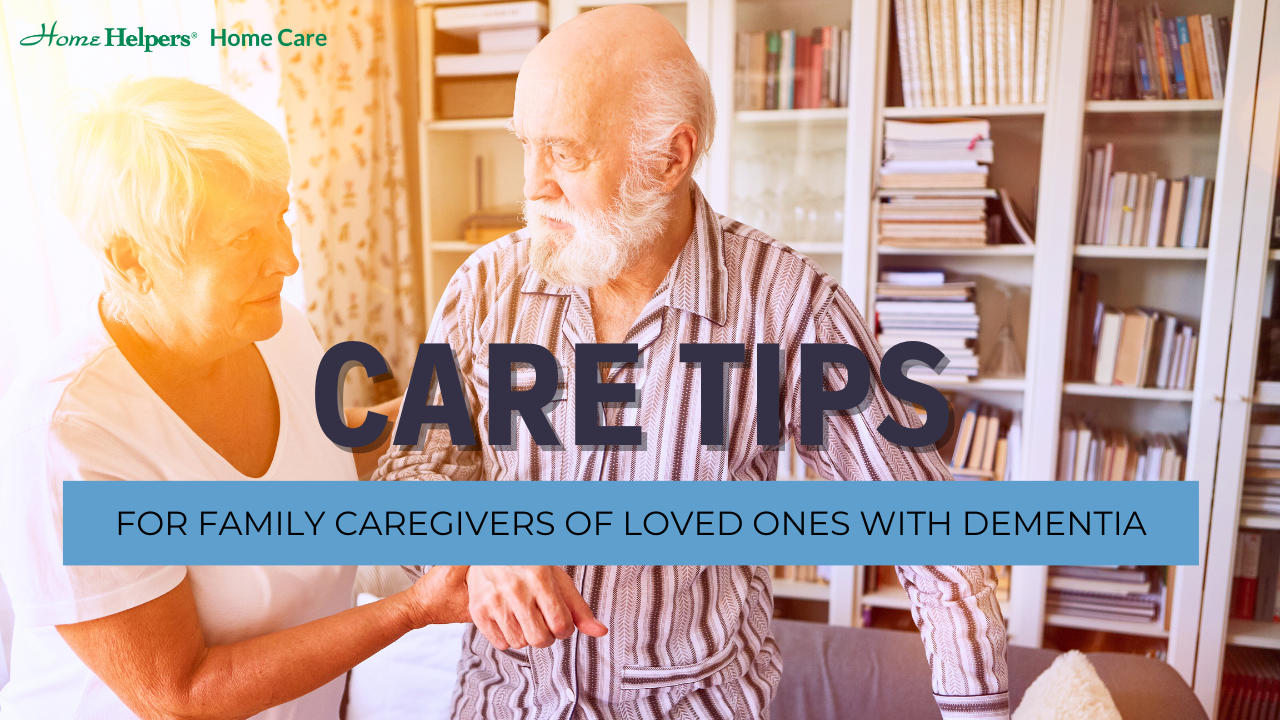Tips for Family Caregivers of Loved Ones with Dementia in the Northern Shenandoah Valley

Author: Home Helpers Home Care
Caring for a loved one with dementia is an act of love, patience, and commitment. Across the Northern Shenandoah Valley—from Winchester to Front Royal to Purcellville—family caregivers are doing their best to provide support and comfort while navigating the daily realities of dementia. The journey can be overwhelming at times, but with the right tools, knowledge, and support, it can also be meaningful and deeply rewarding.
Here are ten practical tips to help caregivers provide compassionate dementia care while maintaining their own health and well-being.
1. Educate Yourself About Dementia
Learning about the type and stages of dementia your loved one is experiencing can help you prepare for changes and respond more effectively. Whether it's Alzheimer’s, Lewy body dementia, or frontotemporal dementia, understanding symptoms and progression is key.
📝 Local tip: Look for educational sessions offered by local hospitals, churches, or memory care programs in Winchester and surrounding towns.
2. Establish a Routine
Routine provides comfort and stability for individuals with dementia. Familiar schedules reduce confusion and create a sense of security.
Consider building the day around:
- Morning hygiene routines
- Mealtimes
- Walks in Jim Barnett Park or time outside on the porch
- Evening quiet time with calming music
Incorporate activities your loved one enjoys, and try to keep bedtime and wake-up times consistent.
3. Maintain a Safe Environment
Home safety is critical, especially in multi-level or older homes commonly found in parts of Purcellville, Front Royal, and Winchester.
Safety strategies include:
- Removing throw rugs and clutter from walkways
- Installing grab bars in bathrooms
- Securing doors to prevent wandering
- Using nightlights in bedrooms and hallways
Safety modifications reduce fall risks and support independent mobility.
4. Use Clear and Simple Communication
As dementia progresses, communication changes. Use short sentences, speak slowly, and offer visual cues when needed. Avoid quizzing or correcting your loved one—reassurance and redirection go much further.
📝 Tip: Eye contact and gentle tone matter just as much as the words themselves.
5. Encourage Physical Activity
Movement helps maintain strength and balance while boosting mood and reducing restlessness. Some ideas include:
- Walking in the neighborhood or local parks
- Stretching or chair exercises
- Dancing to familiar music
- Gardening or sweeping the porch
Adapt activities to your loved one’s comfort and ability level.
6. Promote Cognitive Engagement
Simple, structured activities can help stimulate memory and promote interaction.
Try:
- Photo albums and memory boxes
- Easy puzzles or sorting games
- Coloring, painting, or crafts
- Playing favorite songs or hymns
Even a short conversation or looking at a scenic photo book can bring joy and connection.
7. Take Care of Yourself
Caregivers across the Shenandoah Valley often juggle full-time jobs, parenting, and caregiving responsibilities. It's easy to forget about your own needs—but self-care isn’t optional.
Strategies:
- Take regular breaks
- Eat nourishing meals and stay hydrated
- Get fresh air or light exercise
- Join a caregiver support group through a local hospital or Alzheimer’s Association chapter
As your loved one’s needs evolve, so does your need for support.
8. Seek Professional Help
Dementia care can become more complex over time. Don’t wait for a crisis to ask for help.
Local support may include:
- In-home care from Home Helpers Home Care of the Northern Shenandoah Valley
- Respite care to give you a break
- Memory care evaluations from Valley Health or community health centers
- Adult day programs for socialization and stimulation
Professional care enhances safety and can extend the time your loved one is able to remain at home.
9. Stay Organized
Keep track of:
- Medications and doses
- Medical appointments and changes in condition
- Daily caregiving tasks or routines
- Emergency contacts
Use a shared calendar or mobile app to coordinate with family members and healthcare providers.
10. Be Patient and Flexible
Some days will go smoothly, others will be difficult. Flexibility and patience are essential traits for any dementia caregiver. Celebrate the small wins, find humor when you can, and let go of perfection.
You’re doing your best—and that’s enough.
How Home Helpers Home Care of the Northern Shenandoah Valley Can Support You
At Home Helpers, we understand the challenges that families face as dementia progresses. We support caregivers in Winchester, Front Royal, Purcellville, and surrounding communities with personalized, compassionate in-home care that adapts to your loved one’s changing needs.
We provide:
- Personal Care – Bathing, grooming, dressing, and toileting assistance
- Health Monitoring – Medication reminders and daily wellness checks
- Companionship – Engaging conversations, memory games, and emotional support
- Respite Care – Reliable, professional care so you can rest and recharge
Whether you're just starting your care journey or need help adjusting to new behaviors, our trained Caregivers are here to walk beside you every step of the way.
Conclusion
Dementia caregiving is filled with complexity, but it’s also filled with moments of deep love and connection. With the right knowledge, support, and a trusted care partner like Home Helpers, you don’t have to do it alone.
📞 Call Home Helpers Home Care of the Northern Shenandoah Valley at (540) 709-1324 to schedule your free consultation and learn how we can support your family.
Sources:
- Alzheimer’s Association. (2023). Tips for Dementia Caregivers – www.alz.org
- National Institute on Aging. (2023). Caring for a Person with Alzheimer’s Disease – www.nia.nih.gov
- Mayo Clinic. (2023). Dementia Caregiver Tips – www.mayoclinic.org
